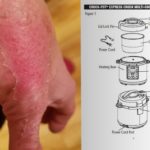Being able to file a product liability claim is one of very few options consumers have that allows them to legally go against small to mid-sized businesses and big corporations. As one of the most damaging lawsuits a business can face, it is slightly surprising that most cannabis businesses aren’t taking this into consideration.
Jesse Alderman, co-chair of the cannabis practice at Foley Hoag, an international law firm, issued a quote for Marijuana Business Daily. Marijuana businesses “have not given the forethought to the product-liability issue that you might see in more mature industries,” Alderman said.
Cannabis Liability in California
California is one of many states that are considering legalizing the possession of cannabis. According to the Associated Press, State Sen. Scott Wiener, D-San Francisco, introduced a bill to decriminalize psychedelic drugs for medicinal and recreational use. Alongside health and public use concerns, companies may want to consider taking precautionary measures. If more accessible, it increases the chances of a small cannabis business getting sued if they fail to market appropriately or a consumer sustains a personal injury from use.
Product liability is a form of personal injury law with a specific criterion that helps identify who is liable for dangerous products through a supply chain. Normally plaintiffs hire an experienced lawyer for product defects because there are more than one group involved in making the unfortunate mistake. Unlike normal businesses, the marijuana industry has a significantly different set of third-party partnerships. It can involve:
- A secondary business that may provide guidance or growing advice (nutrient and irrigation companies).
- Businesses that can manufacture infused cannabis products and concentrates.
- Companies that produce and sell ingredients to other manufacturers.
- A third-party business that can make and sell vape pens and inhalers.
- Laboratories that test for quality assurance purposes.
- Packaging companies.
Safety Standards
Though most companies are not worried about getting sued, they follow state-based cannabis compliance standards. That can mean screening partners and making sure associated products comply with standards and have a clean record. Cultivators, Manufacturers and Retailers all play a part.
- Cultivators, or growers would monitor quality of care to ensure the cannabis is free of contaminants. Additionally, they go a step further to make sure it has a long shelf-life before it gets purchased in-store.
- Manufacturers may use a concentration to formulate accurate potencies for products or edibles (food).
- Retailers are at the end of the chain. Store operators will make sure products have a testing certificate and suppliers are vetted with a background check. Their history and reputation with other retailers will be reviewed.
Disclaimers and Warnings
The cannabis industry is growing at a fast pace, and it is expected to continue seeking growth over the next few years. Though businesses can expect to see more approval it will still face challenges. Regulation is the biggest downside – from the moment it is shipped to a supplier anything can happen to affect the drug’s quality. If a consumer smokes, eats or uses the product it is not intended to be used, without sufficient instructions, they can file a claim. A Los Angeles personal injury attorney would be best to hire, as they can build a strong case to get you compensated for medical costs and other damages.
The most common mistake made in this industry is false advertisement or lack of warning on the website or package label. As a consumer, it can be frustrating when a product doesn’t offer an adequate overview or explanation. There can be unknown health risks associated with consumption that impact one’s well-being. Marketing defects is one of three types of liability claims that can and will be used in court.
“It could go a long way for people to acknowledge some of the inherent safety risks and to disclaim them,” Alderman said to a reporter from Marijuana Business Daily. “Disclaimers are an easy step to take that give you lots of protection. It’s a common practice that in certain circumstances can be helpful.”





Post a comment